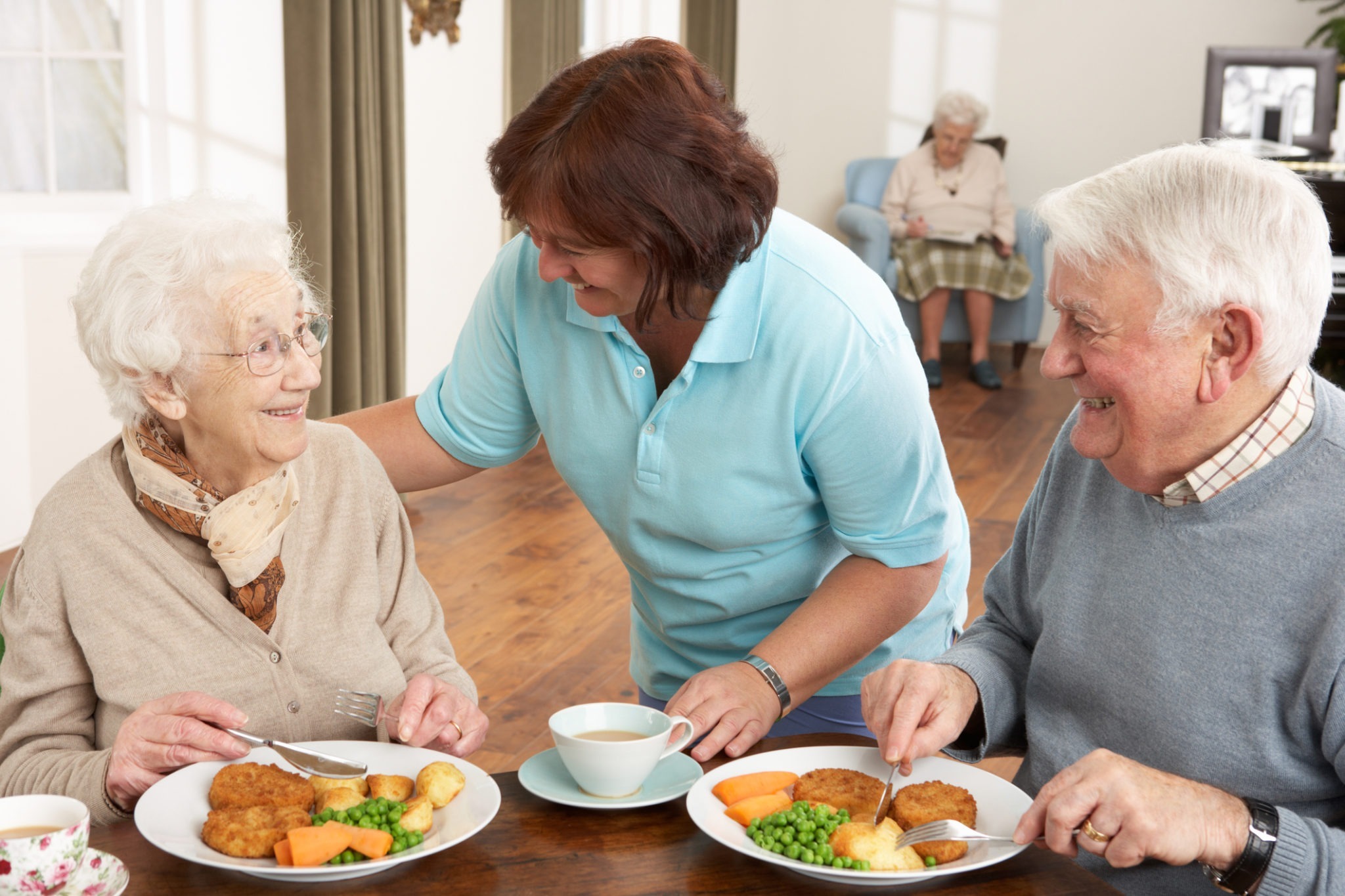How to keep an elderly person eating well and staying healthy can be one of the biggest worries when they live alone. As we age, our memories of family recipes and meals tend to fade, and it’s not unusual for senior parents’ adult children to be suddenly shocked by how little or poorly their parents are eating. You might suddenly discover a largely empty refrigerator, expired food, or other unhealthful changes. It’s crucial to pay attention, listen, and provide assistance when required. It’s important for us to pay attention to nutrition because it’s important for keeping our parents healthy as they age.
Many seniors lose interest in cooking, but a healthy diet and regular exercise are essential for aging well. Older adults may not cook the foods they used to enjoy due to a variety of factors, including side effects from medications, altered taste buds, physical difficulty, and eating alone. Burnout from years of using the same family recipes is another common reason seniors avoid the kitchen.
In this article, we’ve listed some of quick meal ideas for our elderly people.
Veggies shine in these easy recipes for seniors
It is important that the diet of our seniors will be supplemented with vitamins and minerals by a rainbow of in-season, fresh fruits and vegetables. If there is a farmers market nearby, stock up on your favorite locally grown foods. If not, your local grocery store should always have delicious produce available.
1. One-Pan Salmon and Vegetables
Because it is so simple to prepare, this recipe hardly counts as one. It places a focus on flaky, vibrantly pink salmon, which is a protein source low in calories and rich in heart-healthy omega-3 fatty acids and energizing B vitamins. This non-recipe has a lot of uses! A flaky fish, like tilapia or trout, should be used as a substitute for salmon. Potatoes can be added to make the dish heartier, or you can use any other ingredients you have in your refrigerator in place of the vegetables.
2. Roasted Root Vegetables
Sweet potatoes, beets, parsnips, and carrots are a few examples of colorful, adaptable root vegetables. They contain significant amounts of fiber and antioxidants, and some have been shown to successfully control blood sugar levels when included in a diabetic diet. They’re also a delicious substitute for traditional roasted potatoes, and they’re just as simple to make. Note: Some seniors may find it challenging to chop firm vegetables for this recipe.
3. Eggplant with Creamy Yogurt Sauce
The main ingredient in this simple senior meal is eggplant, which is also a fantastic source of senior nutrition, fiber, and phytonutrients, which are known to improve memory. Additionally, it is a soft food that doesn’t mush up dentures. Mix all ingredients for the Creamy Yogurt Sauce in a small bowl; season with salt and pepper to taste. For a flavorful, Mediterranean dish, serve your roasted eggplant with the yogurt sauce. As a side dish, think about serving whole-grain pasta, chopped cucumbers, and tomatoes.
4. Healthy Tuna Veggie Casserole
When you’re craving something hearty but healthy on a rainy afternoon, this straightforward version of the classic is ideal. Whole grain pasta and heart-healthy omega-3 fatty acids from the tuna are both excellent sources of nutrition for seniors. Peas and broccoli are also excellent sources of antioxidants and nutrients. Reminder: An electric can opener is a great kitchen tool if arthritis makes opening cans difficult.
5. Go-To Soup
This recipe is a go-to because it is so adaptable and makes use of nutrient-rich pantry staples. Additionally, it’s a soft food that’s suitable for elderly people with dental issues or difficulty chewing. A good tip for soups and stews is to blend half of them before adding it back to the pot for a smoother texture if you’re cooking for someone who likes softer food. This can be done just before serving. Take care when blending any portion of the soup. The liquid will be hot, and blenders can splatter the hot liquid, posing a burn risk if not used carefully. To lessen the possibility of the lid coming off during blending, keep your hand on it. If you need to modify the consistency further, consider incorporating food and beverage thickeners to achieve the desired thickness, especially for individuals with swallowing difficulties.
6. Pasta and Peas
Bright green peas, a low-fat legume naturally high in protein and fiber, and fresh lemon are flavorful ingredients that add a pop of color and flavor to simple recipes. This dish also provides plenty of onion (full of antioxidants) and olive oil, a heart-healthy, vegetable-based fat.
7. Oatmeal
Try these overnight oats for an even more convenient breakfast! A bowl of fiber-rich oatmeal is a straightforward but healthy morning meal. Versatile oats can take on the flavors of numerous ingredients, including berries. The high fiber content, high filling potential, low cost, and simple chewing of oatmeal make it a fantastic choice for elderly patients. When making oatmeal, think about adding some spirulina or powdered moringa to make it more colorful and nutrient-dense.
8. Peanut Butter and Jelly
This perennial favorite from childhood can make a quick meal for one and appeals to all generations. Start with two pieces of whole grain bread and a tablespoon of unsweetened, oil- and sugar-free peanut butter. Instead of using traditional jellies, add your favorite berries, such as blackberries, blueberries, and strawberries for natural sweetness, for a more modern twist.
What foods should elderly people avoid?
While raw or undercooked meats and eggs can be fatal, these foods are necessary for elderly populations’ good health as a vital source of vitamin B12. Consuming raw or undercooked meats and eggs can cause food poisoning. Avoid grapefruit if the elderly patient is taking multiple medications because it inhibits an enzyme necessary for drug metabolism.
On the other hand, elderly patients who are not taking medication can greatly profit from grapefruit’s potent liver-cleansing properties. Because they encourage the development of inflammation throughout the body, refined sugars should be avoided. Refined sugar-containing foods are to always be avoided because they only provide empty calories. Alcohol and caffeine should also be avoided by seniors, with the exception of green tea. One of the healthiest beverages on the planet, green tea has unique properties. It is packed with nutrients and anti-oxidants that can improve the health of older people.
Conclusion
Many factors can make it challenging for seniors to maintain a healthy diet. Many senior citizens have little interest in cooking, and their evolving palates may cause a general lack of interest in food. Due to adverse drug reactions, older adults who are taking a variety of medications might not be able to taste the food they are eating. In addition to all of these challenges, many elderly people have unique nutritional requirements. In order to ensure that they receive the best nutrition during their golden years, it is crucial to include their GP in their menu planning.


